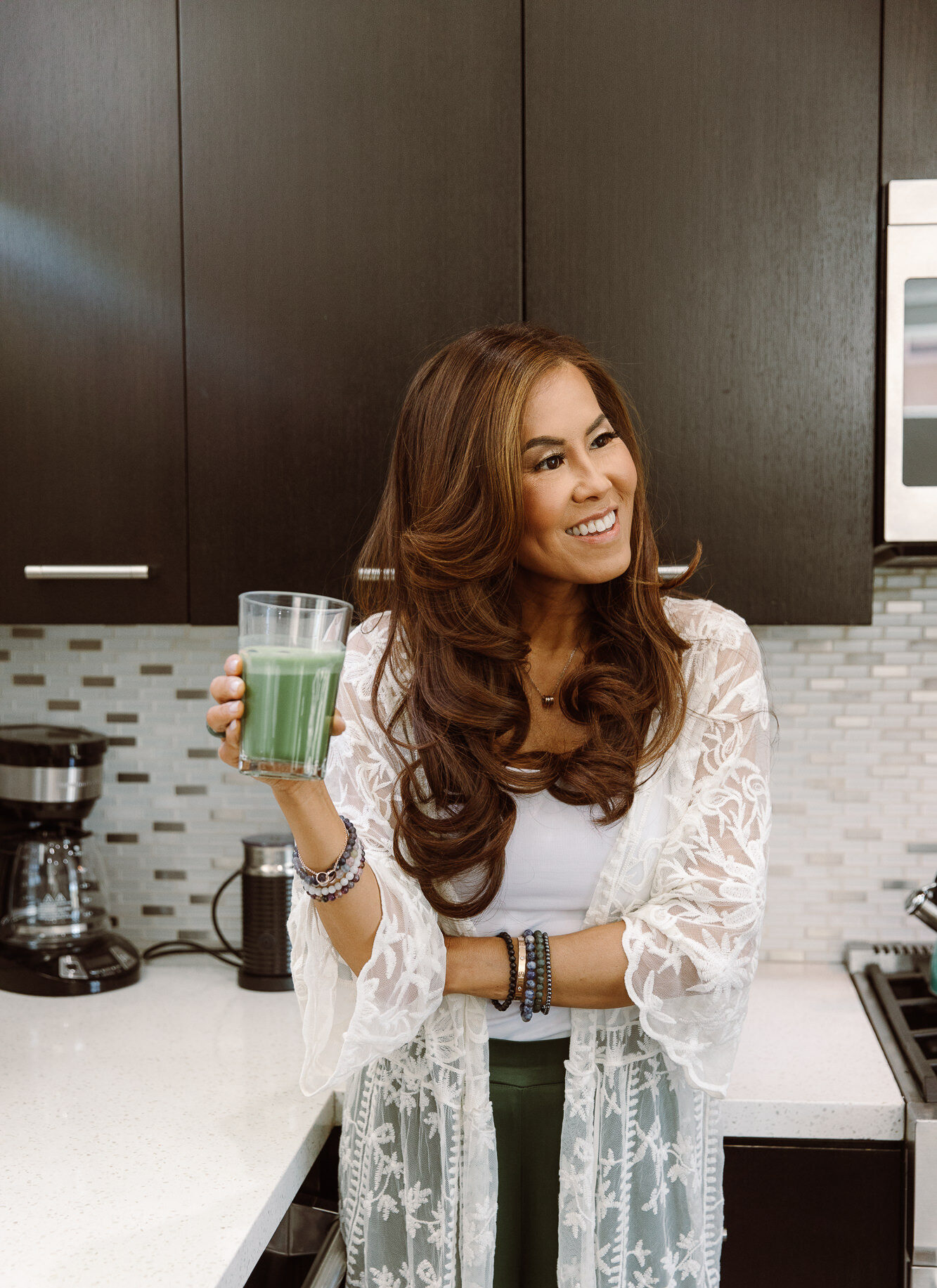Did you know that there are silent diseases lurking out there, subtly affecting our well-being, undermining our health and robbing precious years from our lives? They are called “silent” because most people live symptomless for a long time. It can feel easiest to brush off news about serious illnesses and disorders, thinking “it won’t affect me” until symptoms suddenly appear and you get a diagnosis. One of these silent diseases is on the rise.
Many people are unknowingly facing a health issue called Non-alcoholic Fatty Liver Disease (NAFLD). In fact, it is said to affect 24% of American adults, 5-10% of children in the United States, and approximately one-third of the world. Living in an age of abundance and convenience has unintentionally led to the rise of such health challenges. Our modern diets are largely contributing to the rise of illness and chronic diseases, including NAFLD.
If left unaddressed, NAFLD can lead to fatigue, upper belly pain, and long-term liver damage that escalates the risk of cirrhosis and hepatitis, as well as other health conditions. While medication can help with inflammation, there are key lifestyle changes that we have control over to prevent or even reverse NAFLD. Let’s dive into the actionable steps below!
WHAT IS NON-ALCOHOLIC FATTY LIVER DISEASE?
Non-alcoholic fatty liver disease is just what it sounds like, an accumulation of too much fat build up in the liver, not necessarily caused by abuse of alcohol. While some people are genetically predisposed to the condition, most root causes of this disease are linked to poor diet, obesity, metabolic health issues such as insulin resistance and type 2 diabetes, as well as high blood pressure and high cholesterol. The process of a body succumbing to this health issue goes as follows:
- Excess fat is stored in the liver. This can happen due to a diet high in saturated and unhealthy fats, processed foods, and sugary drinks. Obesity and insulin resistance also contribute to excess fat storage in the liver.
- Fat accumulation leads to inflammation. Inflammation can damage the liver cells and interfere with the liver’s ability to function properly.
- Scar tissue forms in the liver. This is known as fibrosis. Fibrosis can further damage the liver and lead to cirrhosis.
NAFLD can develop over time, but it is not clear how long it usually takes. Some people may develop NAFLD within a few years of having the risk factors, while others may take many years to develop it. Essentially, the signs of Non-Alcoholic Fatty Liver Disease range from minor inflammation with minimal or no symptoms to severe organ damage like cirrhosis.
A few common symptoms include small intestinal bacterial overgrowth, bloating, weight gain, insulin resistance, fatigue, pain or discomfort in the upper right abdomen, and nausea. The non-emergency symptoms like low energy, lack of ability to focus, stubborn weight gain, skin health issues, and early aging, although very common, can signal that your diet, lifestyle, and environment are taking away from your vitality.
The good news is that by implementing a few changes, many people can effectively combat and heal this chronic condition. Most importantly, these lifestyle adjustments need to be sustainable for you. Let’s start with understanding how important the liver is for overall health.
WHAT DOES MY LIVER DO?
Your liver is a powerhouse, essential for sustaining life and promoting wellness in your body. It is the largest organ in your body and is vital to over 500 functions! This includes storing vitamins and minerals, metabolizing carbohydrates, proteins, and fats to turn into glucose, producing bile to help digest fat, regulating blood clotting, producing cells for your immune system, and detoxing harmful substances from your blood.
When you eat a meal, your body converts the food into nutrients, including glucose and fats. The glucose is used for energy, and the fats are stored in the liver and other tissues. The liver then helps to process fats and release them into the bloodstream as needed. However, If you eat more fat than your body needs, the excess fat will be stored in the liver as fat droplets. Over time, this can lead to fatty liver disease.
Processed foods and sugary drinks are often high in unhealthy fats and added sugars. Eating excess sugar can lead to chronic blood sugar imbalance and conditions such as insulin resistance, where your body’s cells do not respond properly to the hormone, insulin. When the body is insulin resistant, glucose builds up in the blood and can be converted into fat in the liver.
When fatty liver disease occurs, the rest of your body’s systems and organs suffer consequences from the liver’s inability to perform properly. Here are several examples.
- Increased risk of infection: The liver plays an important role in the immune system. When liver function is impaired, the body is more susceptible to infection.
- Malnutrition: The liver helps to store and process nutrients. When liver function is impaired, the body may not be able to get the nutrients it needs.
- Fatigue: The liver helps to produce energy. When liver function is impaired, the body may feel tired and weak.
- Bone loss: The liver helps to produce vitamin D, which is important for bone health. When liver function is impaired, there is increased risk for bone loss and osteoporosis.
REVERSE & HEAL NAFLD WITH NUTRITION & LIFESTYLE
To heal fatty liver disease, I often recommend that you implement a whole food plant-based diet or Mediterranean diet high in fiber and rich in fresh fruits and vegetables, nuts, and seeds. A 2018 observational study reported vegetarians had lower odds of fatty liver than nonvegetarians, even after adjusting for age, gender, education, history of smoking and alcohol consumption.
Avoiding ultra-processed foods, refined foods, products high in added sugar, saturated fats, red meat, and excessive alcohol consumption are good dietary habits to adopt for short and long-term health. Being mindful about how much salt you consume daily is also important. A few foods and supplements to consume for healing nutrients include:
- Leafy greens, especially spinach, due to the polyphenols
- High fiber foods and legumes such as lentils, chickpeas, soy beans, and peas for improved gut health and balanced blood sugar levels
- Oily fish for a beneficial effect on lipid levels, or chia seeds and walnuts as a plant-based option for omega-3s
- Green tea and coffee for phytochemicals that reduce inflammation from free radicals
- Garlic for reducing body fat and improving lipid levels
- Foods rich in vitamin D, as a deficiency is linked to fatty liver disease
- Foods rich in vitamin C such as citrus, kiwi, parsley, bell peppers, broccoli, strawberries, papaya, or gooseberry for the antioxidant benefits on liver health
- Foods rich in glutathione or a supplement such as Optimize Me NAC, for significantly reducing levels of ALT, triglycerides, non-esterified fatty acids, and ferritin. One study showed improvements after 4 months.
- Foods rich in zinc and selenium, which can be found in Irish Sea Moss, as a deficiency is often linked to NAFLD
- Turmeric for the benefits curcumin can have on reducing unhealthy liver fat levels after only 8 weeks
- L-Carnitine has been shown to be helpful for those with type 2 diabetes fighting fatty liver disease
- Probiotic and prebiotic-rich foods to support gut health as changes in the gut microbiome via poor metabolic health and the resulting inflammatory response have been linked to NAFLD
- Phytochemicals called polyphenols have been studied for their ability to heal and help reverse the root causes of fatty liver disease. For example, resveratrol, curcumin, quercetin, rutin, anthocyanins, and polyphenols from green tea and coffee affect the molecular pathways that benefit liver health
Getting to a healthy body weight is the most important thing people with NAFLD can do to improve their health. Even a modest weight loss of 5% can have significant benefits. This can be done via a whole food, plant-based diet and a regular exercise routine.
Bile is produced in the liver and secreted by the gallbladder to break down the fats you eat and allow more surface area for the lipase enzyme to break down the fats further. Bile is important for more than just breaking down fats. For example, it is also antimicrobial and prevents excess bacteria from growing in the small intestine which can cause bloating.
If you are experiencing digestive issues and intolerance when it comes to fatty foods, this may indicate an overburdened liver that does not efficiently produce bile salts. Here are a few ways to improve the digestion of fats:
- Chew your food well to allow for the bile and digestive enzymes to be more efficient.
- Eat smaller amounts of foods at a time.
- Supplement with Digest Ease to help with proper breakdown of fats. Also consider magnesium (try Love My Mag), berberine (try Be My Berberine), milk thistle, dandelion root, ginger, glycine, and taurine (try Taurine Supreme).
- Include the whole foods artichokes to increase bile function, beets to boost gallbladder function, and foods that contain choline, such as eggs.
CONCLUSION
Many conditions and diseases that take years off of our lives start at a much younger age than realized. So being proactive about your health TODAY is incredibly important. Common, non-emergency symptoms may be telling signs that your vitality is compromised. I encourage you to invest in your health by being more intentional about diet, sleep, exercise, and emotional well-being, as well as investing in biomarker tests to measure and track your personal health.
by





